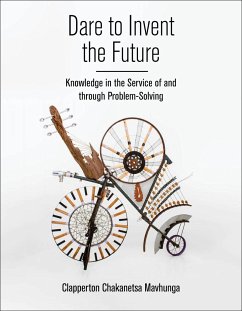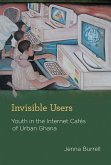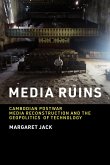A rallying manifesto for the innovative problem-solving we need to build a better, more verdant, and sustainable planetary existence. Academics are letting Africa down. With all that we know, what do we have to show for it? Whose lives have been changed for the better by it? What have we done for and with our communities lately? In this provocative book—the first in a trilogy—Clapperton Chakanetsa Mavhunga argues that our critical thinkers must become actual thinker-doers. Taking its title from one of Thomas Sankara’s most inspirational speeches, Dare to Invent the Future looks for moments in Africa’s story where precedents of critical thought and knowledge in service of problem-solving are evident to inspire readers to dare to invent such a knowledge system. Mavhunga revisits insights from Edward Wilmot Blyden, Booker T. Washington, Aimé Césaire, Frantz Fanon, Amílcar Cabral, Julius Nyerere, and Thomas Sankara to illustrate how the academic disciplines have been, and could be, deployed in the service of and through problem-solving, building on what people are doing and know. At its core, he writes, knowledge in the service of and through problem-solving derives from reading the past for new questions, doing due diligence in the present, and contriving an anticipatory approach toward the future. Questioning the fundamental premises of Western and white knowledge production, especially regarding science and technology, Mavhunga proposes in this book refreshingly new approaches to thinking-doing that stem from African realities, in the hopes of inspiring a generation that will run toward, not away from, problems to solve them.
Bitte wählen Sie Ihr Anliegen aus.
Rechnungen
Retourenschein anfordern
Bestellstatus
Storno








